UN 23 Water Conference – Side Event
[Registration at the bottom of the page]
SOLIDARITÉS INTERNATIONAL has always made the fight against water-related diseases, particularly cholera, one of its priorities. Following an unprecedented resurgence of the disease in 2022, SOLIDARITÉS INTERNATIONAL decided to re-emphasise the importance of ending cholera to achieve SDG6 by organising an official side event at the UN23 Water Conference on March 22 from 6:30pm to 8pm (NY time), with the main active partners of this collective commitment (GTFCC, UNICEF, GWC, ACF, SI, JHU, SDC, member states, etc.). The Global Road Map to End Cholera by 2030, which forms the basis of this side event has become a Voluntary Commitment of the Water Action Agenda.
Cholera is preventable with the tools we have today, putting the goal of ending it within reach.
Achieving the ambition of the SDGs will require focusing on the poorest and most vulnerable populations (those most often affected by cholera), ensuring no one is left behind.*
Rationale
- Ending cholera outbreaks is integral to the Sustainable Development Agenda, both as an explicit target for combatting water-related diseases within SDG 3 (“ensuring healthy lives and wellbeing for all”), as well as a proxy measure to track progress toward the achievement of SDG 6 (“access to water and sanitation for all”). A safely managed level of WASH services not only prevents cholera, but also fulfils the human right to water and sanitation access.¹
- Each year, cholera affects between 1.3 and 4 million people and causes between 21,000 and 143,000 deaths – and while Sub-Saharan Africa is disproportionately affected, the disease has a global footprint.² Cholera remains both neglected and under-reported, with limitations in surveillance systems and the fear of stigma (including negative impacts on trade and/or tourism) causing many cases to go unrecorded. Today, cholera affects 47 countries across the globe. Almost every developing country faces the threat of cholera and many have experienced – or are currently experiencing – outbreaks.³
- In 2021, 23 countries reported cholera outbreaks, mainly in WHO’s Africa (AFRO) and Eastern Mediterranean (EMRO) regions. This trend continued into 2022, with an unprecedented resurgence of the disease causing 29+ countries to report cholera cases or outbreaks. The causes of this situation are multiple, but compounded by conflict, forced migration, economic and social disruption from the COVID-19 pandemic, and climate change. Many of these countries reported higher case numbers and case fatality rates (CFR) than in previous years. The average cholera CFR reported globally in 2021 was 1.9% (2.9% in Africa) – well above the acceptable threshold (<1%) – and represented the highest recorded CFR in over a decade. Of particular concern are the outbreaks in 2022, with 13 countries reporting cholera cases after reporting no cases in 2021.⁴
- Cholera is an acute diarrheal infection caused by ingestion of food or water contaminated with the bacterium Vibrio cholerae. Therefore, universal access to safe drinking water and basic sanitation is key in the fight against cholera. WASH interventions are the only permanent solution to end cholera. Most cholera control activities have been focused on emergency response to outbreaks, which reduces the number of cases and deaths but does not have significant impacts on the prevention of cholera in the long-term. Resilient and well-resourced WASH programs are limited and do not regularly prioritize the areas most affected by cholera.⁵
- The true impact of a disease must be viewed within a broader framework, not just through the number of patients affected or number of deaths caused. Cholera is a disease of poverty; therefore, cholera incidence is a key indicator of social equity and development. Cholera is a marker of inequality, striking those who have already been made vulnerable by conflict, insecurity, and poverty. However, due to the large differences between the number of reported and estimated cholera cases – namely due to imprecise, insufficient, and inconsistent data sources – a realistic economic analysis of the cholera burden in affected areas is quite complex.⁶
- Ending cholera requires a cross-sectoral and multi-disciplinary approach that combines WASH, health systems strengthening, surveillance and reporting, community engagement, and leadership and coordination. The strategy to eliminate cholera must be based on preparedness and capacity to respond to short-term emergencies (outbreaks) through surveillance, planning, and contingencies, as well as investing in long-term prevention measures, including the development of improved and sustainable WASH services to address the root causes and enabling conditions of cholera. This strategy is conducive to the development of Humanitarian Development Nexus approaches and partnerships in disease hotspots.
- Climate change further increases the risk of cholera and other waterborne diseases by altering temperatures, precipitation levels, and frequency of extreme weather events, all of which threaten to reverse years of steady progress⁷.
- Voluntary Commitment: this side event aims to accompany the GTFCC’s contribution to the Water Action Agenda “Supporting Cholera Control and Prevention Efforts via Ending Cholera – A Global Roadmap to 2030”. This contribution was submitted to the Water Action Agenda on 20 January and is approved.
Objectives
This session aims to:
- Reaffirm the importance of investing in cholera control to ensure the achievement of SDGs 3 & 6;
- Raise awareness of the global efforts being undertaken to end cholera, including a focus on the resurgence of the disease;
- Emphasize the need to develop cross-sectoral and multidisciplinary partnerships to enhance the impact and effectiveness of cholera control and prevention efforts;
- Reiterate the importance of maintaining response capacity (to emerging epidemics, humanitarian crisis contexts, etc.), while also investing in long-term development of WASH and health services to sustainably reduce long-term epidemic risks; and
- Promote the sharing of practices and learnings to increase efficiency and effectiveness of actions.
Speakers
- Introduction: Erick Orsenna, writer
- Humanitarian actors: SOLIDARITÉS INTERNATIONAL & Action Against Hunger
- Institutional actors: Global Task Force for Cholera Control (GTFCC) & UNICEF & Global WASH Cluster (GWC)
- Member State: France (Ministry of Health and Prevention)
- Academic: John Hopkins University (JHU)
- Donors: Swiss Agency for Development & Cooperation (SDC)
- Private sector: VEOLIA Foundation
Content (draft version)
- Part I: Presentation (25 min)
- Part II Panel Discussion (45 min)
- Part III: Q&A (20 min)
Practical information
- Date and time: 22 March from 6.30 to 8pm (New York time)
- Location: 777 United Nations Plaza, New York, NY 10017 (Church Center)
Registration closed, thank you.
Speakers at this side event organised by SOLIDARITÉS INTERNATIONAL:
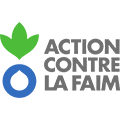
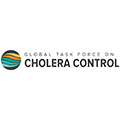
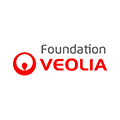
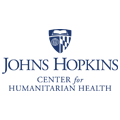
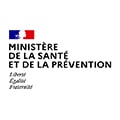
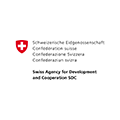
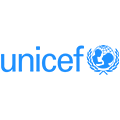
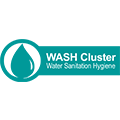
*Source: Ending Cholera – A Global Roadmap to 2030. Global Task Force on Cholera Control
¹ https://www.gtfcc.org/wp-content/uploads/2020/09/ending-cholera-a-global-roadmap-to-2030.pdf
² https://www.ncbi.nlm.nih.gov/pmc/articles/PMC4455997/
³ https://www.gtfcc.org/about-cholera/
⁴ https://www.who.int/emergencies/disease-outbreak-news/item/2022-DON426
⁵ https://www.gtfcc.org/wp-content/uploads/2020/09/ending-cholera-a-global-roadmap-to-2030.pdf
⁶ https://www.sciencedirect.com/science/article/pii/S0264410X19309272#b0150
⁷ https://www.gtfcc.org/wp-content/uploads/2023/01/gtfcc-steering-committee-statement.pdf
